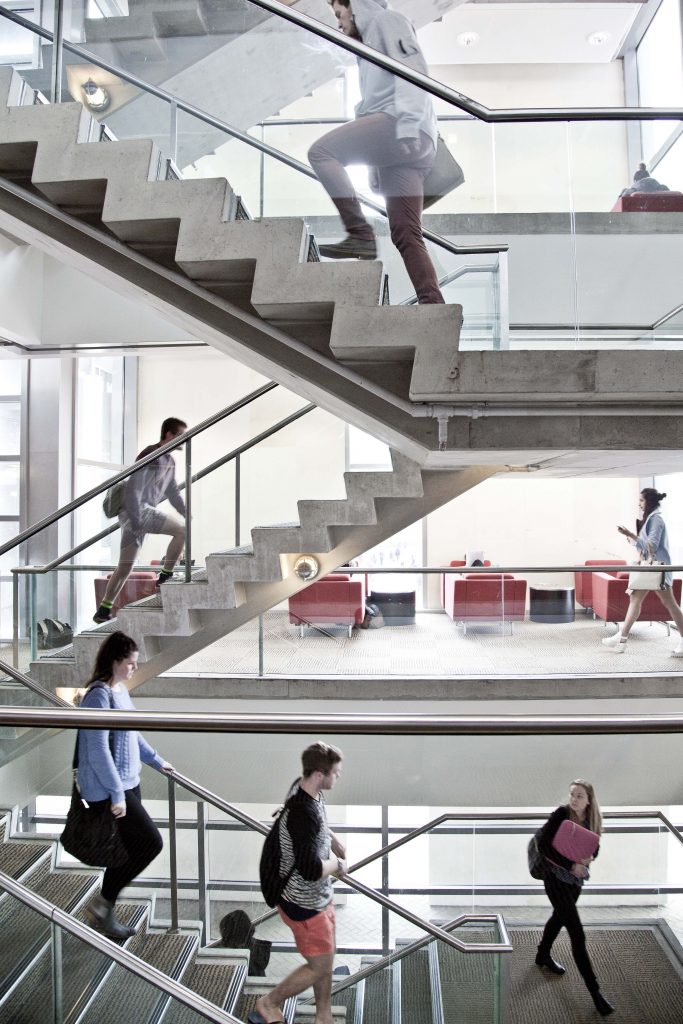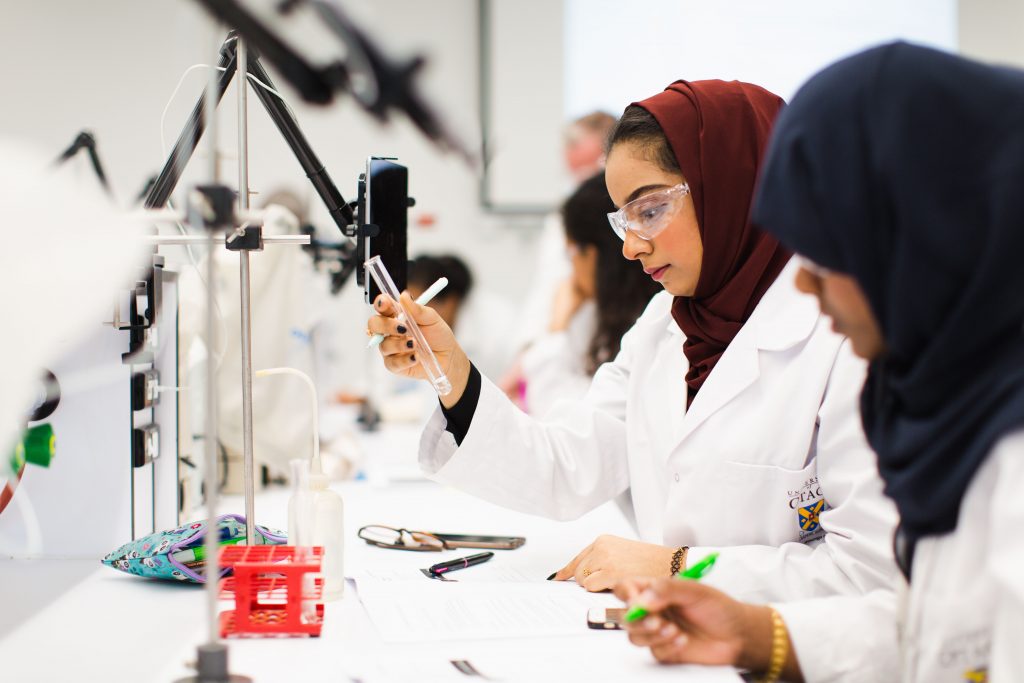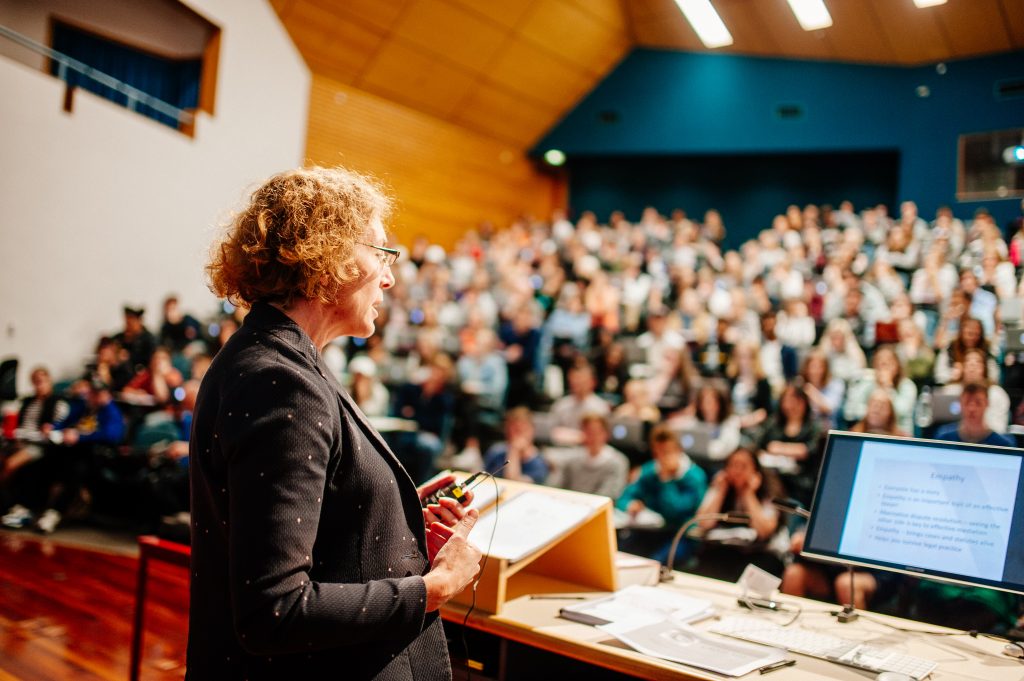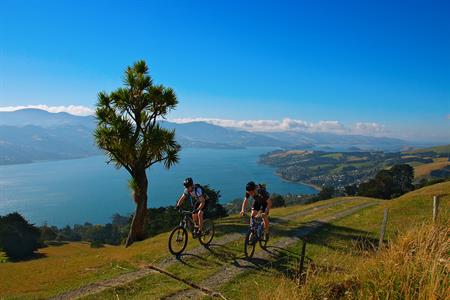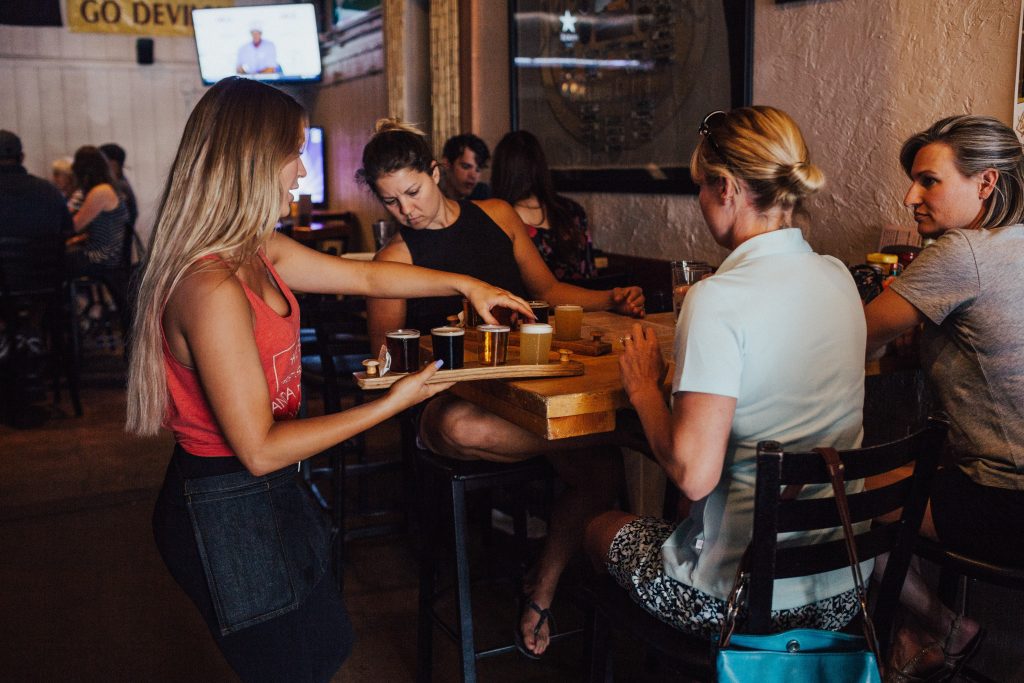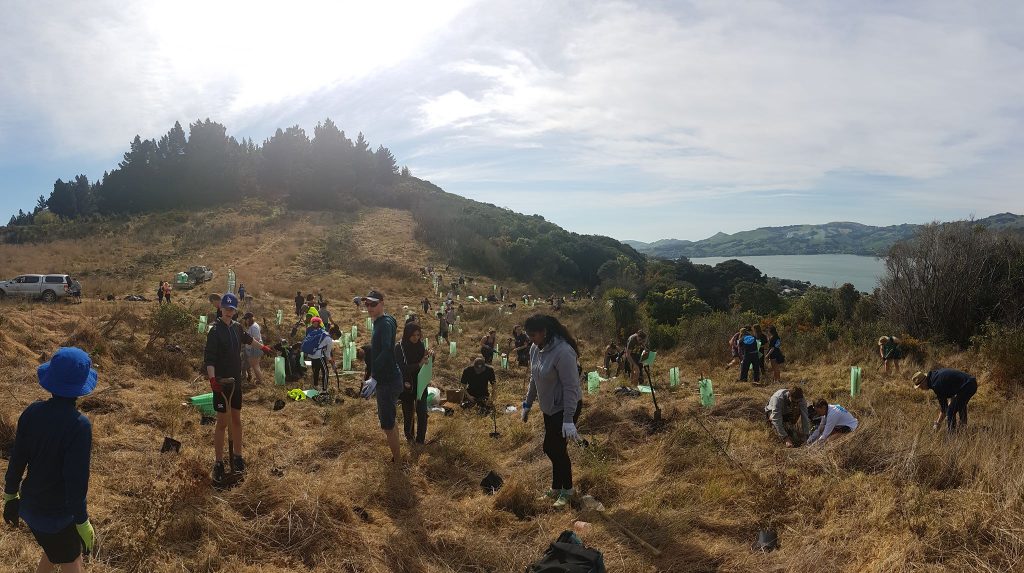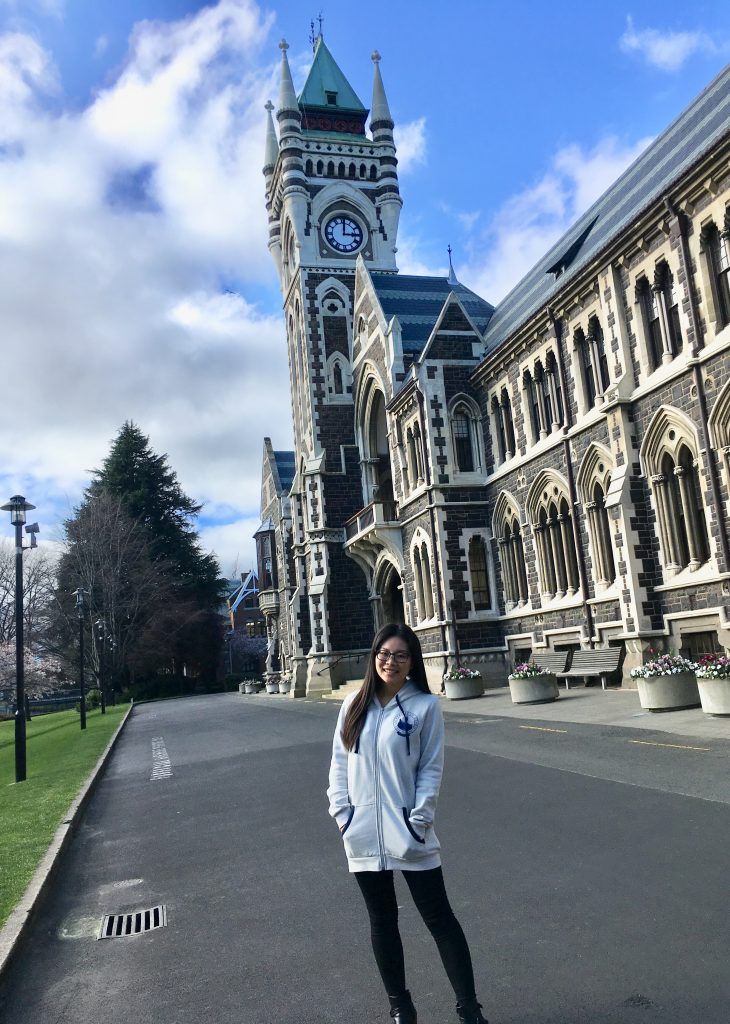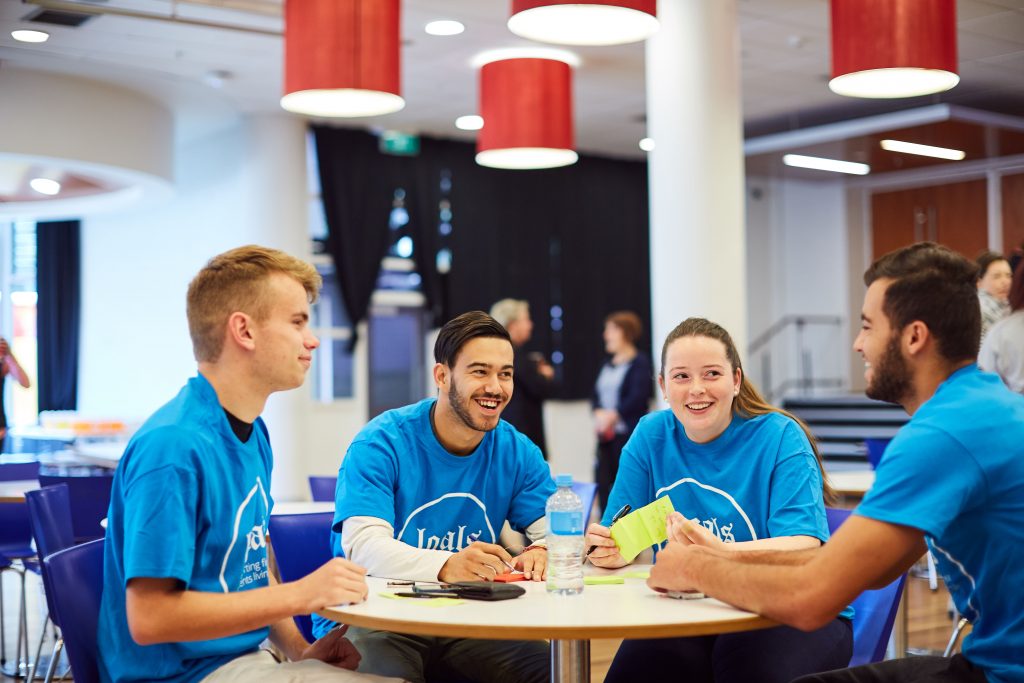Just because we can, does it mean we should?
In today’s world, more than ever before we require people who are trained in an interdisciplinary nature so that they can ask the hard questions like the title of this blog; “just because we can, does it mean we should?” This kind of dilemma is one that people will increasingly face as science and technology continually allow us to achieve what was once deemed impossible. The University of Otago has taken this into consideration and developed an interdisciplinary degree called the Bachelor of Arts and Science (BASc) and we’re going to take a closer look at it in today’s blog post.
Humanities or Science?
Traditionally universities around the world have encouraged students to specialise in either science or the humanities. There just hasn’t been an option of being able to do both and quite frankly it is extremely limiting to those students who can do both. Thankfully, Otago has always been very flexible when it comes to degree structure and students have long been able to include some humanities papers in their science degrees, and science papers in their arts degree. They have also been able to do a double degree which would usually take five years, but now students at Otago have another option that mixes both disciplines with the BASc – it allows you to have a science or an applied science major and an arts major but it only takes four years.
Subject options
We have a reputation here at Otago of being very flexible when it comes to course choices and degree structure and if you’re looking for a degree that offers a multitude of subject options then the BASc is definitely the one for you – there are about 1500 possible combinations of major subjects available so you really don’t just have to fit into one box with this degree!
Well rounded individuals
One of the reasons the University of Otago has developed this degree is to give employers more of what they want – well rounded individuals who are not only educated in their chosen field, but as mentioned in the introductory paragraph individuals who can see the world from different views or paradigms. Artificial intelligence, genetic manipulation, areas of study that are become increasingly advanced and potentially useful, but areas that are not without risk. The world needs people that can understand the science of an issue but who are also aware of our very human nature and what we have learnt from our past experiences and mistakes.
Follow your passions
Whilst some degrees and programmes will ultimately place you directly into a job in a chosen field sometimes the best way to find your chosen career path is to follow your passions. The BASc will allow you to do this, and as Associate Professor Lisa Ellis, Philosophy Lecturer and Bachelor of Arts and Science Adviser states: “You are better prepared if you follow your passions and develop yourself intellectually…..you are much more attractive to an employer.”
Nicky Richardson is an International Marketing Coordinator at the University of Otago. With degrees in music and marketing, she is a recent graduate of Otago herself – she loves Otago so much she ended up getting a job here!
Where can an Otago degree take you?
One thing that never ceases to amaze me in my job is the sense of loyalty and pride that the University of Otago imparts on alumni. International students who have studied at Otago and have integrated into the culture and immersed themselves in all the opportunities have an incredible passion for this university at the bottom of the world. A passion that continues long after they have left us.
An email sent to our department was forwarded my way last week from a student who graduated with a BSc (Bachelor of Science) in Chemistry in 2012. From my first glance it was clear that this student wanted to share her story, so I got in touch with Nicole Bravo Castro (nee Wurster) to find out what she had to say about her experiences at Otago.
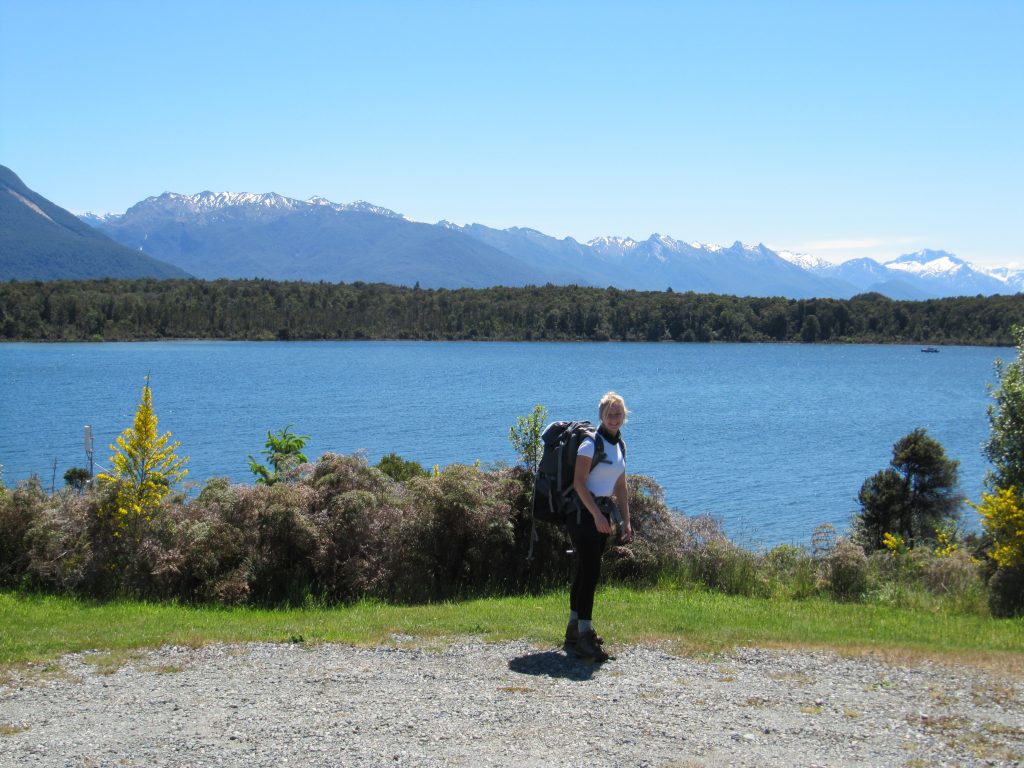
Nicole exploring the spectacular South Island during her time spent here studying for her undergraduate degree.
Plans change
Nicole Wurster (pictured above) had travelled to NZ from her home in Germany as a high school exchange student. She never had any intention of staying beyond that time, but plans do change….
“I felt inspired by everyone applying for university and was immediately drawn to the University of Otago – having been to Dunedin previously on a summer vacation I guess I had already fallen in love with New Zealand’s southern beauty. Back then, I remember strolling around campus and dreaming about studying at Otago. I decided to stay for the duration of my entire undergraduate degree.”
Why Otago?
Like many other international students who choose to study here our worldwide reputation and cutting edge research is attractive. Also, another point that is often mentioned is the welcoming and warm nature of our staff and students, and Dunedin as a whole, Nicole felt immediately at home. But another reason is the flexibility of our programmes – Otago aims to turn out well rounded graduates who have a broader subject knowledge and skill set than their chosen degree may imply:
“Choosing courses at Otago is quite flexible, I could individually select and combine my courses to plan my degree step by step. I absolutely loved this option as it helped me throughout my studies to develop my strengths – the system allowed me to take a couple of non-scientific subjects in order to give me a broader general knowledge.”
How did you find the learning/teaching environment at Otago?
“I loved it and haven’t come across the same dynamics in any other tertiary educational institution I know. Otago’s chemistry department put a great focus on teamwork and offered countless opportunities to develop interpersonal skills. Otago is very modern in both its facilities and its spirit and I developed some core writing skills which I value up to this day. Lecturers were friendly and felt very authentic, which made every trip to university enjoyable – even the early morning lectures! The feeling of not being just one of many, but someone individual with something valuable to offer is something I have frequently missed in European universities.”

Nicole (second from left) and friends with the iconic University of Otago clocktower in the background.
What about the student life/culture?
As we have mentioned before the saying ‘one size does not fit all’ is very applicable. If we are going to be authentic the fact is not every single student that comes to us loves their time here. But one theme that does come through after all our discussions with international students is that keeping an open mind will allow you to enjoy the culture and the range of experiences more. “During my entire time as an international student I have felt fully included by my peers and completely immersed into the Otago culture. I always kept an open mind and am still thrilled about the genuine friendliness of people in Dunedin and their laid back attitude towards life.”

Nicole Bravo Castro today – she credits her time at Otago as a stepping stone to an international mindset and career.
Where are you now?
After completing a Master in Science in Germany and additionally studying for one semester in France, Nicole is now fully employed for the Scottish Company ‘PEAK Scientific’ as territory manager in Northern Germany.
“I love how my job allows me to make use of my chemistry background whilst as the same time giving me the opportunity to speak to a variety of people, using the various languages I speak and benefitting from my international experiences.”
Advice to those thinking of coming here?
“There really is no other place that compares to New Zealand, and Dunedin is particularly gorgeous. If you love natural beauty, sports and everything else the South Island offers, this is your best choice, it is also a very safe place in the world. My years at Otago feel like a key stepping stone in my journey towards having a very strong international mind-set, a curiosity for foreign culture and a high level of tolerance towards others.”
Nicky Richardson is an International Marketing Coordinator at the University of Otago. With degrees in music and marketing, she is a recent graduate of Otago herself – she loves Otago so much she ended up getting a job here!
Career Success – what does it mean to you?
When you make the decision to study towards a degree or diploma you are setting yourself a goal to strive towards – but what happens when you reach that goal? You have your qualification, so what next? How do you shape your career into what you want it to be?
We caught up with Yvonne Gaut from the University of Otago Career Development Centre to discuss this and she has put forward two simple and wise tips that can help you get where you want to go.
Choice
“When we make choices about our careers, we are making choices that will have implications for our work, our learning, our families and our communities”.
Tristram is one of my favourite career professors and I follow his work as he publishes and presents around the world. He investigates how various aspects of your identity, position in society and background will impact on your chance of career success.
Goal = Success
This is a good time to pause and consider what career success means to you. If you don’t know what that is, then you won’t know if you can achieve it. Once you have an idea of career success this can then be a goal. When you have a goal you are able to develop a strategy to work toward.
Take time to dream
#Tip 1. Take some time to dream, talk or draw about what career success will look like to you. It’s a useful idea to have a career journal either a paper one or within a device. Someplace that you can keep a record of your reflections and can return to whenever you feel the need.
How your career develops is not just an outcome of your choices, personality or your course. How the society in which you live is structure and how other people treat you, all have an impact.
Identify barriers
#Tip 2. Identify some of your future barriers. Considering what might hold you back from achieving your goals enables you to work on them before they leave you powerless.
Careers development works at the interface between the individual and society, between self and opportunity, as well between aspiration and realism.
Ask for help
Make use of the career service while it is freely available to you. If you are not sure what you need to ask, talking with a career development adviser can help to clarify your thoughts around your career and provide some ways to consider your future goals.
You can make a time to talk with a career development adviser through OtagoCareerHub or directly contact yvonne.gaut@otago.ac.nz
Career Development Centre – Te Pokapū Umanga | University of Otago – Te Whare Wananga o Otago
IS Building, Albany Street, PO Box 56, DUNEDIN
Employability is the new ‘it’ word, what does it really mean?
There is so much jargon in the business world…….buzz words, acronyms that seem to be more confusing to people than helpful half the time… and confusion over what a word or phrase actually means………but we are not afraid to ask the questions here!
We decided to talk to Melissa Fuller about the word ’employability’ – here is her take on this fashionable word.
Soft skills
Employability is the new ‘it’ word, but in simple terms for a candidate looking for a role – it is your soft skills.
So what are soft skills? They are skills outside of your qualification. Skills such as the ability to form relationships, create a customer experience, effectively communicate with others and problem solving. These skills are hard to teach and some people naturally have them.
No prior work experience is irrelevant
The best way to gain those important soft skills is to volunteer, find part time work or summer work. No prior work experience is irrelevant. In any work experience you have developed skills such as listening, following instructions and communicating with a diverse range of people.
Soft skills = transferable skills
These skills are transferable into any role you wish. An example: if you work in a busy restaurant while studying finance, you are able to show your ability to work and listen under pressure. Something that may be important in a finance based role. You can identify what skills outside of your qualification are important by reading the job description or talking to others in the industry.
Sell your particular package of skills
It is important to remember that Dunedin, as well as New Zealand, is built on small to medium size businesses with employee numbers fewer than 30. Investing in employees is a big decision for those employers and an expensive undertaking. ‘Selling you‘ as a package of skills to a potential employer will enhance your chances of becoming employed and help the business.
Learn, grow and develop yourself
Look outside your qualification and create opportunities to learn new skills. Unicrew is a great place to go to try out volunteering. For more information on how to find work while studying in Dunedin, follow us on Facebook. www.facebook.com/getworkready or go to www.getworkready.co.nz for more information.
Melissa Fuller is the energetic, enthusiastic program co-ordinator at ‘Work Ready,’ and she is passionate about helping international students adapt to life in New Zealand and move into employment prior to graduation.
Where are they now? 5 questions and answers with an Otago alumni.
There is no shortage of information on what universities can offer prospective international students in regards to programme choice, entrance requirements, accommodation and lifestyle, but once you have reached your goal and walked the stage to receive your hard earned degree or diploma, what next? Life doesn’t end when your course ends, it is just the beginning! We decided to catch up with University of Otago alumni Joyce Zhang to find out where she is, what she is doing, and her thoughts on what it is like to be an international student studying at Otago.
What did you study and why?
I studied English at the University of Otago Language Centre and Foundation Year UOLCFY and then studied telecommunication (Postgraduate Diploma in Science) in information science department which is on the ninth, tenth and eleventh floors of the Otago Business School building. It was the same major as my Bachelor degree, everyone in my bachelor class in China pursued a higher degree as we believe it will lead to better employability. I thought ‘why not improve my English along with a higher qualification’ so I decided to go overseas.
Where are you now?
I am working as a China Representative for the University of Otago and I am based in Guangzhou, China. I look after student recruitment and partnership engagement in the China market for the Otago University International Office (which I am very proud of – it is a dream for me to work for my university 😊).
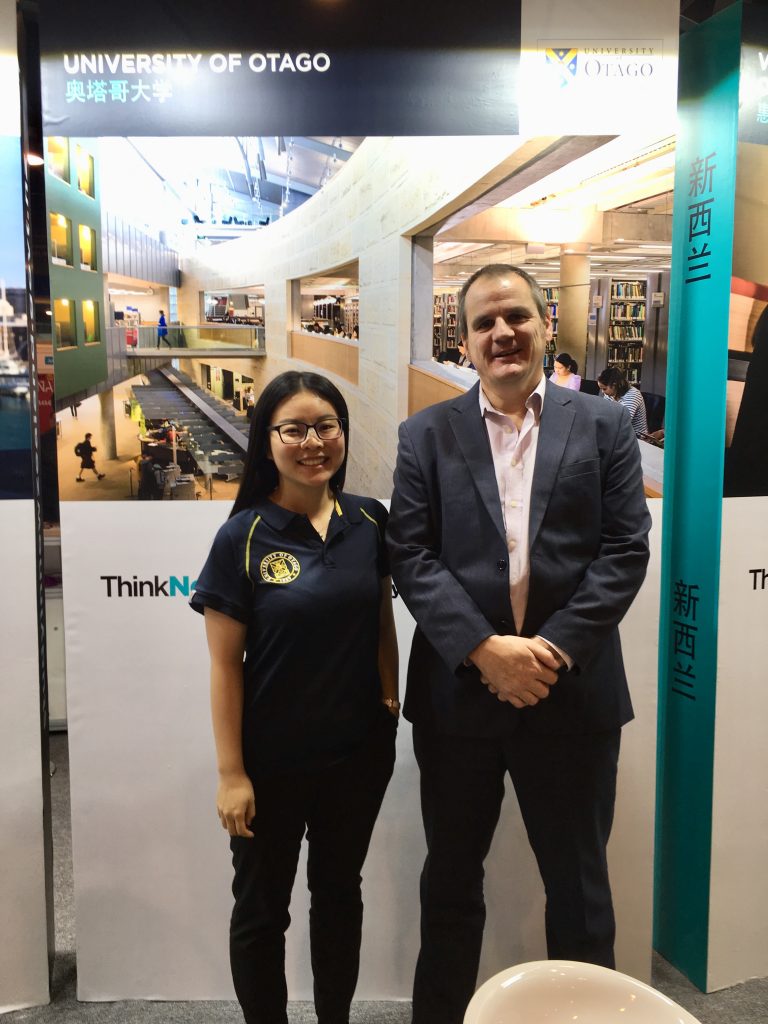
Joyce Zhang pictured here with Regional Marketing Manager for China, Dan Prain at an Education NZ Fair in Beijing, China last month.
Fondest memory of Otago
My fondest memory of Otago was my international friendships – you never lose them even though you’re not in the same country. A Japanese girl I met in Language Centre helped me a lot to improve my oral English so I achieved IELTS 7 in speaking after only 1 month of my arrival in NZ. A Korean girl with a working holiday visa invited me to visit her in Seoul two years ago, and we went to Shanghai Disneyland this March. I also met a nice couple from Denmark who studied as exchange students and we visited the Dunedin Chinese Garden and went skiing together. I am so proud of all these friendships and value them as treasures in my life… I know that I will never forget them and that they will never forget me and we keep in touch on social media.
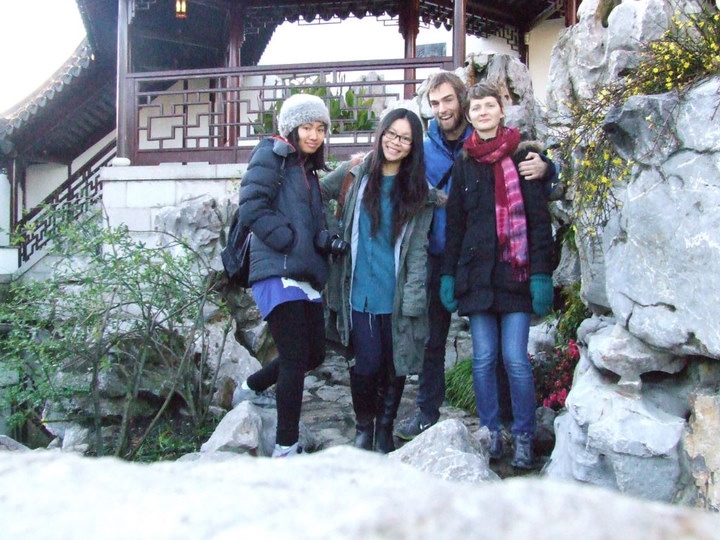
Joyce Zhang (pictured second from the left) at the Dunedin Chinese Garden with other postgraduate students she met and made friendships with whilst studying at Otago.
What advice would you provide for incoming international students about Otago?
Make friends and experience as much as you can. You might worry about your English, safety about travelling and all sorts of stuff, but please don’t stop exploring. Join in peer programmes, language exchange programmes, mentee and mentor programmes. There are many kinds of useful programmes designed for international students that will give you real engagement and help you become a true Otago student.
And just because we like to keep things a little bit light hearted, we thought we would throw in a random question…….
If you were on a deserted island and could only bring three things, what would you bring and why?
Hmmm water, food and… a boyfriend??!! Even if I was isolated, I can still be alive and enjoy every min as long as I can! 😊
If you want to maximise your employment opportunities with further study, want to improve your English speaking and make life long friendships, be like Joyce and find out more about studying at Otago!
Nicky Richardson is an International Marketing Coordinator at the University of Otago. With degrees in music and marketing, she is a recent graduate of Otago herself – she loves Otago so much she ended up getting a job here!
Post-Study Work Visas – what’s changing?
Are you thinking about staying to work in New Zealand after you graduate from the University of Otago? Or maybe you are considering the University of Otago as a study destination and wondering whether you can work in New Zealand after graduating? In this post, Anna explains the recent changes to post-study work rights for international students
Recently the New Zealand Government announced changes to the conditions and length of the post-study work rights for international students. These changes will start from 26 November 2018.
The new changes will mean most students who graduate from the University of Otago will experience fewer visa applications, a greater freedom to work and potentially less risk of exploitation by employers.
Post-study work visas will be granted with ‘open’ work conditions. The ‘open’ work conditions mean that your visa is not linked to any employer and will allow you to work in almost any job, for any employer, anywhere in New Zealand after finishing your New Zealand study.
How will this change affect you?
We would really like to answer this question in detail here. However, your eligibility for the post-study work visa, and the duration that will be granted, does depend on a number of factors including when you started your qualification, your qualification level and the length of your study in New Zealand.
To help you understand the changes, Immigration New Zealand have put together an information factsheet and list of frequently asked questions to assist international students. We recommend that you take a look at this information first and then, if you need further assistance with finding the right information for your situation, you can contact our office for support.
Prepare for your future career in New Zealand
Consider volunteering while you are studying – this is a great way to help develop skills that add to your CV (also known as a resume) and enhance your future employability. Remember, employers are not just looking at your academic record but also value real-life experience. Volunteering may also provide you with an opportunity to explore Dunedin, engage with the local community and culture, meet new people and practice your English. The University Volunteer Centre is on campus and offers an easy way to get involved in volunteering.
We also suggest you make use of the University of Otago Career Development Centre, which is available to all students, including international students. This is a great resource on campus to help you plan your career path, prepare for the job market, and develop a NZ-style CV. Do not wait until after you have graduated to talk to them, the best time to make use of their services is after completing your first year of study (or as soon as you arrive if you are only here for a year).
Know your work rights in New Zealand
Student visa holders with work conditions and work visa holders have the same rights and responsibilities as New Zealand workers. It is a crime for employers to exploit you or impose illegal working conditions. Immigration New Zealand have some information about migrant exploitation on their website, and international students studying at the University of Otago can also contact our team of international student advisors for support and advice.
Anna McLachlan is the Team Leader, Compliance Services in the International Office. Anna and her team members, Kathy and Angelique, provide a student visa renewal service on campus and are available to assist students with student visa and insurance queries. If you need help with finding information about post-study work visa category, you can also contact them by emailing student.visa@otago.ac.nz

